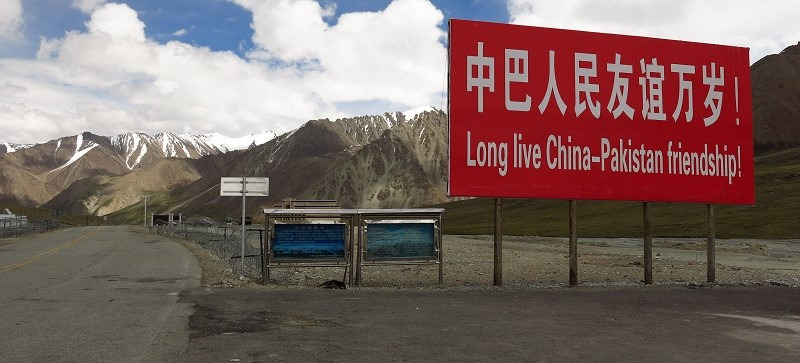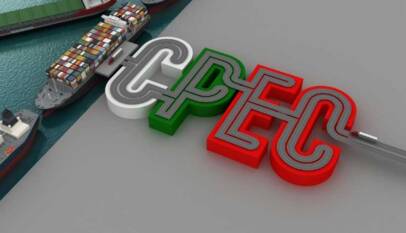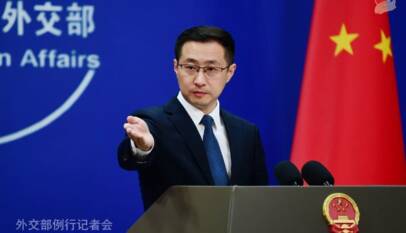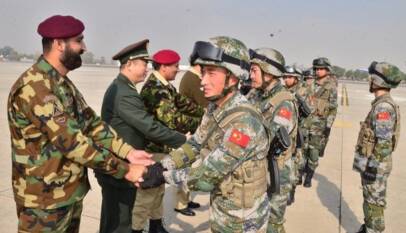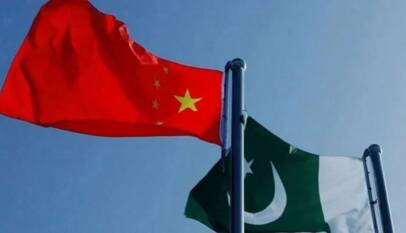Execution of CPEC is not vulnerable to the temporary epidemics
Prime Minister’s Adviser on Commerce, Trade and Industry Abdul Razzak Dawood, ensured invincible implementation of projects under CPEC and expressed confidence in Chinese effective measures to tackle the menace of virus. The government believed execution of CPEC will not be halted by such temporary epidemic and hopeful that China will address the issue efficiently and effectively.
ISLAMABAD: The ongoing trade and and the pace of completion on China-Pakistan Economic Corridor (CPEC) projects will not be impacted on account of the coronavirus outbreak originating from Wuhan, a high-ranking government official said on Monday.
According to a report published in The News, Adviser to Prime Minister on Commerce, Industries, Production, Textile and Investment Abdul Razak Dawood said during an interview that there was still a need to look at how the virus develops and whether it can be contained.
“New interaction on business to business level for fresh trade with Chinese entrepreneurs may be affected but it will also be short-lived as the Chinese are workaholic and will soon be able to overcome the situation emerging out of the corona virus upsurge,” he noted.
Just a day before departing to Malaysia with Prime Minister Imran Khan on an official visit, Dawood remarked that shipment of exports and imports was being carried out and there was no impact of the virus on the said transactions under a trade agreement with China.
“Fresh face to face interactions with entrepreneurs of both the countries for more trade may be impacted because of the coronavirus phenomena. I am quite optimistic that China will soon cope with this menace and normalcy will prevail soon,” he added.
‘Textile policy almost finalized’
When questioned about the textile policy, Dawood said that the policy had almost been finalized and will soon be pitched before the federal cabinet for approval, adding that the new policy will not outline a plan for the next three years time, but rather for the next five.
Also read: PM Imran departs for Davos to attend WEF
“I agree that the energy package for textile industry must be extended for five years. Under the energy package, export oriented sectors are provided RLNG at the price of $6.5 per MMBTU and electricity at all inclusive tariff of 7.5 cents per unit,” he revealed.
The adviser was told that the Power Division had started, in new bills issued to the exporters, charging quarterly adjustment tariff and increase in monthly fuel adjustment owing to which per unit tariff had increased to 13 cents/unit from 7.5 cents per unit.
“After coming from Malaysia, I will personally take up this issue with Prime Minister Imran Khan as 13 cents per unit tariff to export industry will not help increase the exports of the country, rather it will prove counter-productive,” Dawood maintained.
‘Progress on GSP Plus status delayed but meetings productive’
Talking about the Pakistan’s endeavor to get hold of an extension in the GSP Plus status, the adviser said that he recently visited Brussels wherein he held meetings with top officials of the EU Commission but progress on this issue had got delayed on account of Brexit.
“During my interaction, I found all senior officials of EU Commission very supportive for extending GSP Plus status to Pakistan. I successfully convinced the EU Commission officials and told them about Pakistan’s endeavors on progress on four areas of concern from EU.”
“These include current status of implementation of labour laws and more importantly on progress about child labour and bonded labour, status of human rights in Pakistan, and transparent process of registration of International NGOs,” he said.
The adviser again reiterated that he felt he was able to convince the EU members and that the they responded by saying they wanted Pakistan to prove progress in the concerned areas. He added that the EU would soon recommend an extension of the GSP Plus to Pakistan.
However, he admitted the fact that the EU authorities are also being influenced by India, and other competitive economies in the region, but the adviser was optimistic that Pakistan will get extension in the GSP Plus status after the review.
“The EU Monitoring Mission will visit Pakistan in April and will hold meeting with officials of various ministries and Attorney General of Pakistan, who is head of Treaty Implementation with EU,” he said.
According to the officials of the commerce ministry, the EU approved the GSP Plus status for Pakistan in 2013, but it got operational in 2014. Pakistan’s exports to EU stand at $8 billion, and 56 percent exports of these are possible because of the GSP Plus status.
CPEC’s Success Story: $25 Billion Invested Across 38 Completed Projects
ISLAMABAD: A total of 38 projects worth over $25 billion have been completed and 23 develo…



